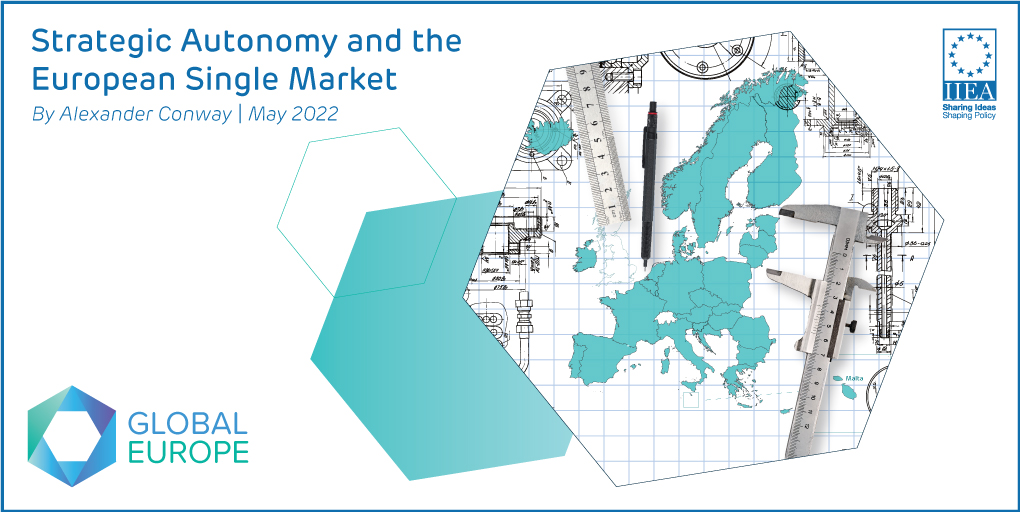Strategic Autonomy and the European Single Market

The re-emergence of global geopolitical competition and economic disruptions poses serious challenges to the nature of the Single Market and the EU’s vision of free and fair international trade in an increasingly competitive and contested global order. These disruptions of the rules-based international trading order also present a challenge to Ireland’s economic model, as a small, economically open country with considerable technology and services sectors.
The EU proposes to meet these challenges for supply-chains and access to critical materials by reinforcing the EU’s strategic autonomy, namely the capacity to assert the EU’s interests abroad and to protect European consumers and firms at home. The expansion of security concerns and geopolitical competition into more commercial realms may mean that both Ireland and the EU will have to balance ensuring that the European Single Market remains open to the world without becoming overly protectionist or dependent upon others in an increasingly complex and contested world.
This publication explores the various legislative, financial, and strategic partnership tools that the EU has at its disposal to assert its interests and to protect the European consumers, firms, and the Single Market as part of the EU’s broader strategic autonomy agenda, and their implications for Europe’s future resilience and prosperity.
Protecting and Promoting Business in the European Single Market: Explainer
This explainer on European strategic autonomy explores 13 identified tools under the headings of legislative, financial, and strategic partnership instruments which the EU has at its disposal to assert its interests and to protect European consumers and firms. These instruments are further characterised as either proactive, reactive or both in terms of their roles and impacts in preserving and promoting the Single Market as part of the EU’s broader strategic autonomy agenda.
